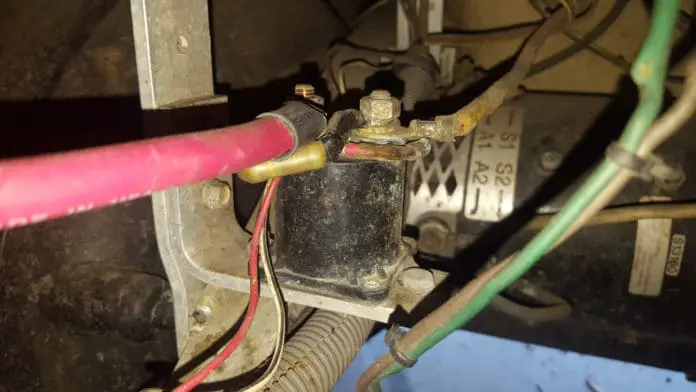Do Golf Carts Need License Plates
Golf carts have become a popular mode of transportation, not only on the golf course but also in gated communities, retirement homes, and other private properties. However, one question that often arises is whether or not golf carts require license plates. The answer to this question is not straightforward and varies depending on several factors, including state and local laws, the type of golf cart, and how it is being used.
In this article, we will explore the topic of whether golf carts need license plates and provide a detailed overview of the factors that determine this requirement. We will examine the differences between low-speed vehicles, street-legal golf carts, and off-road golf carts, as well as the licensing requirements in various states.
Additionally, we will discuss the benefits and drawbacks of having a license plate on a golf cart, as well as best practices for operating a golf cart with or without a license plate. Whether you are a golf cart owner or simply curious about the rules and regulations surrounding these vehicles, this article will provide a comprehensive guide to help you navigate this topic with ease.

State and Local Laws
The first factor to consider when determining whether a golf cart requires a license plate is the state and local laws. These laws can vary significantly from one location to another. In some states, golf carts are treated like any other motor vehicle and require license plates, while in others, they may be exempt from this requirement.
For example, in Florida, golf carts are required to have a license plate if they are driven on public roads. However, in Arizona, golf carts do not require a license plate if they are used only within a designated retirement community.
Types of Golf Carts
Another factor that affects whether golf carts require license plates is the type of cart. There are three main types of golf carts: low-speed vehicles (LSVs), street-legal golf carts, and off-road golf carts.
LSVs are typically designed to operate at speeds of up to 25 mph and are equipped with features like headlights, taillights, turn signals, and seat belts. These vehicles are considered street-legal in most states and require a license plate to operate on public roads.
Street-legal golf carts, on the other hand, are similar to LSVs but may be able to reach speeds of up to 35 mph. These vehicles require a license plate in most states and must be equipped with features like seat belts, windshield wipers, and a horn.
Off-road golf carts are designed to operate on golf courses and other private property and are not street-legal. These vehicles do not require a license plate in most states, but may be subject to other regulations depending on the location.
When License Plates are Required
In general, license plates are required for golf carts that are operated on public roads. However, there are some situations in which golf carts may be exempt from this requirement.
For example, in some states, golf carts may be exempt from licensing requirements if they are operated only on private property or within a designated retirement community. Additionally, some states may offer temporary operating permits for golf carts that are being used for a specific purpose, such as transportation during a festival or parade.
Getting a License Plate for a Golf Cart
If a golf cart is required to have a license plate, the process for obtaining one can vary depending on the state and local laws. In general, however, the process involves registering the vehicle with the Department of Motor Vehicles, submitting the necessary documentation, and paying a fee.
The documentation required for registering a golf cart can vary, but may include proof of ownership, proof of insurance, and a bill of sale. Some states may also require that the golf cart pass a safety inspection before it can be registered.
Benefits and Drawbacks of Having a License Plate
There are several benefits to having a license plate on a golf cart. For one, it can make it easier to identify the owner of the vehicle in the event that it is stolen or involved in an accident. Additionally, having a license plate can make it easier to register the vehicle and obtain insurance coverage.
However, there are also some drawbacks to having a license plate on a golf cart. For example, the process of obtaining a license plate can be time-consuming and expensive. Additionally, some people may prefer the anonymity that comes with not having a license plate on their golf cart.
Best Practices for Operating a Golf Cart with or without a License Plate
Whether a golf cart has a license plate or not, there are several best practices that operators should follow to ensure safety and compliance with state and local laws.
First and foremost, operators should always wear a seat belt and follow all traffic laws, including speed limits and stop signs. Golf carts should only be operated on roads where they are legally allowed, and operators should always yield to pedestrians and other vehicles.
In addition to following traffic laws, operators should also be mindful of the weight capacity of their golf cart and avoid overloading it with passengers or cargo. Proper maintenance is also essential for safe operation, and operators should regularly inspect their golf cart for any signs of wear or damage.
Finally, operators should be aware of any additional regulations that may apply to their golf cart, such as noise ordinances or restrictions on where they can be parked.
Conclusion
In summary, whether or not a golf cart requires a license plate depends on several factors, including state and local laws, the type of cart, and how it is being used. While some golf carts may be exempt from licensing requirements, those that are operated on public roads will typically require a license plate.
Regardless of whether a golf cart has a license plate or not, operators should always follow best practices for safe and responsible operation. By doing so, they can help ensure the safety of themselves and others and avoid potential fines or penalties.






